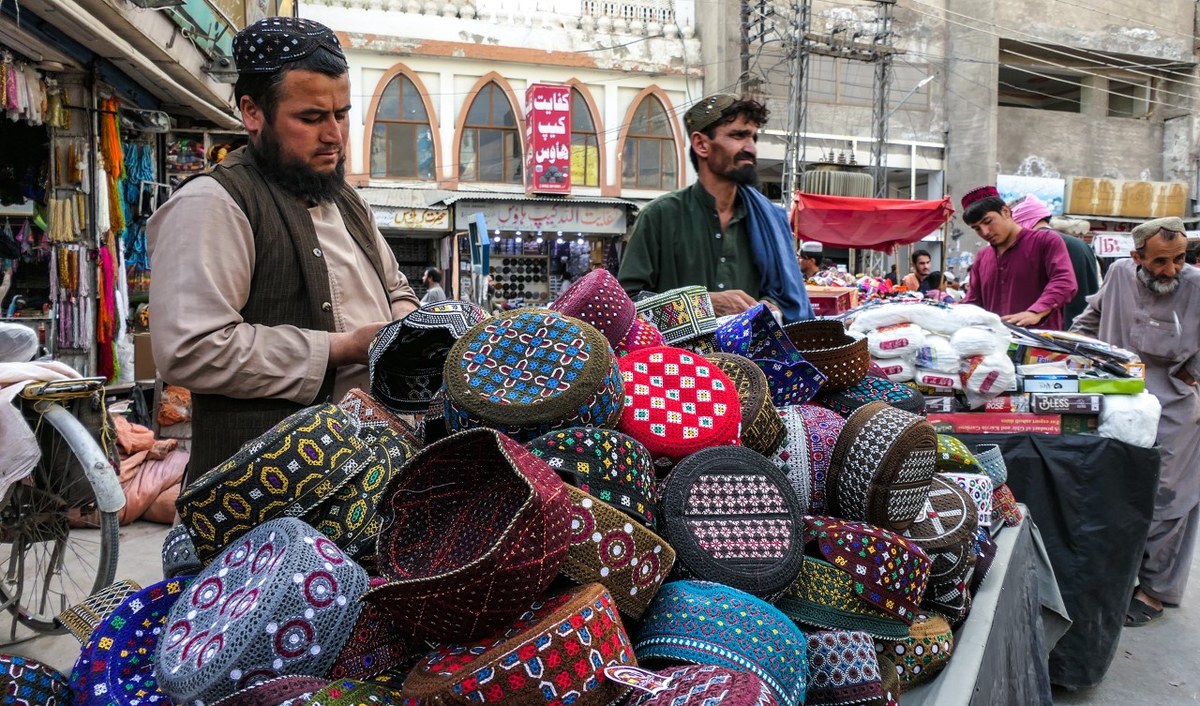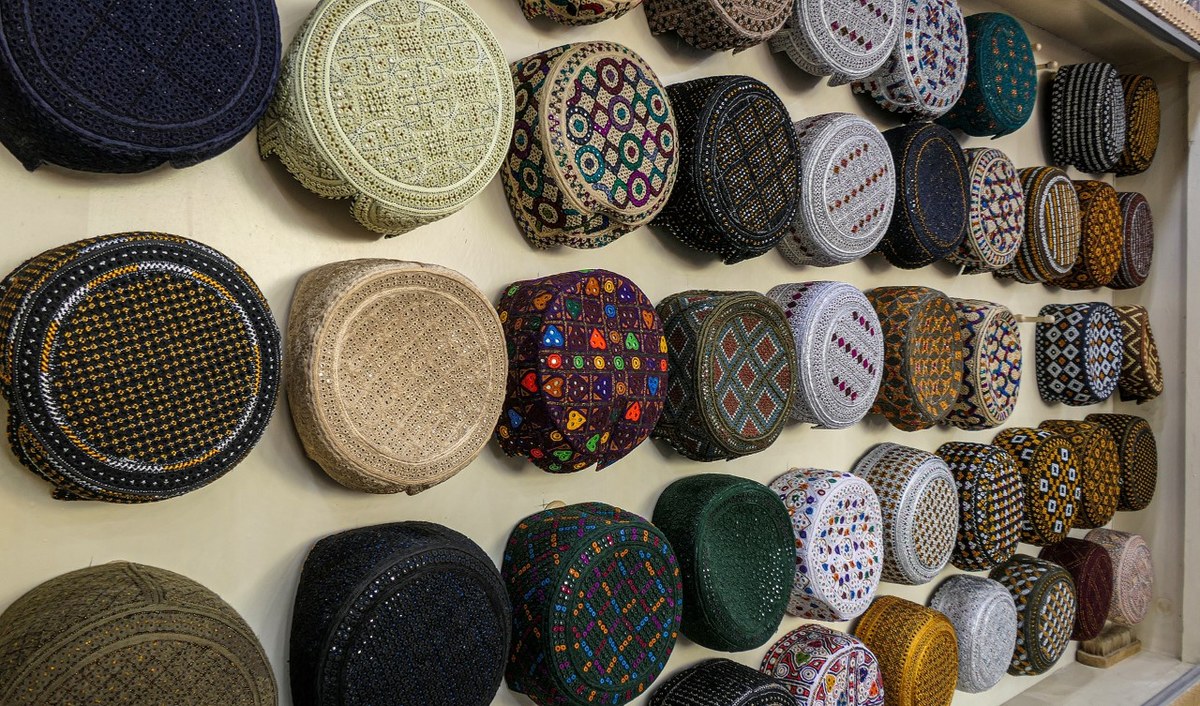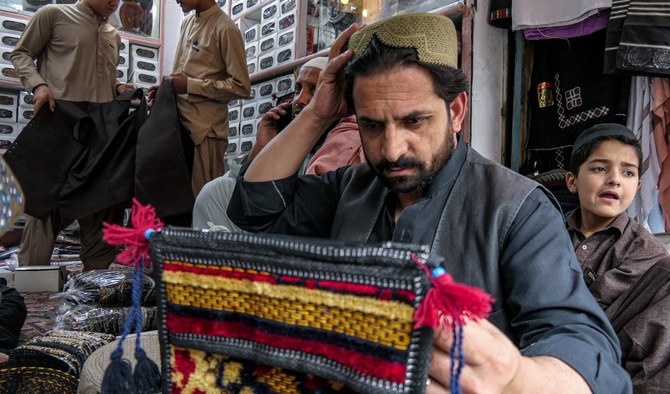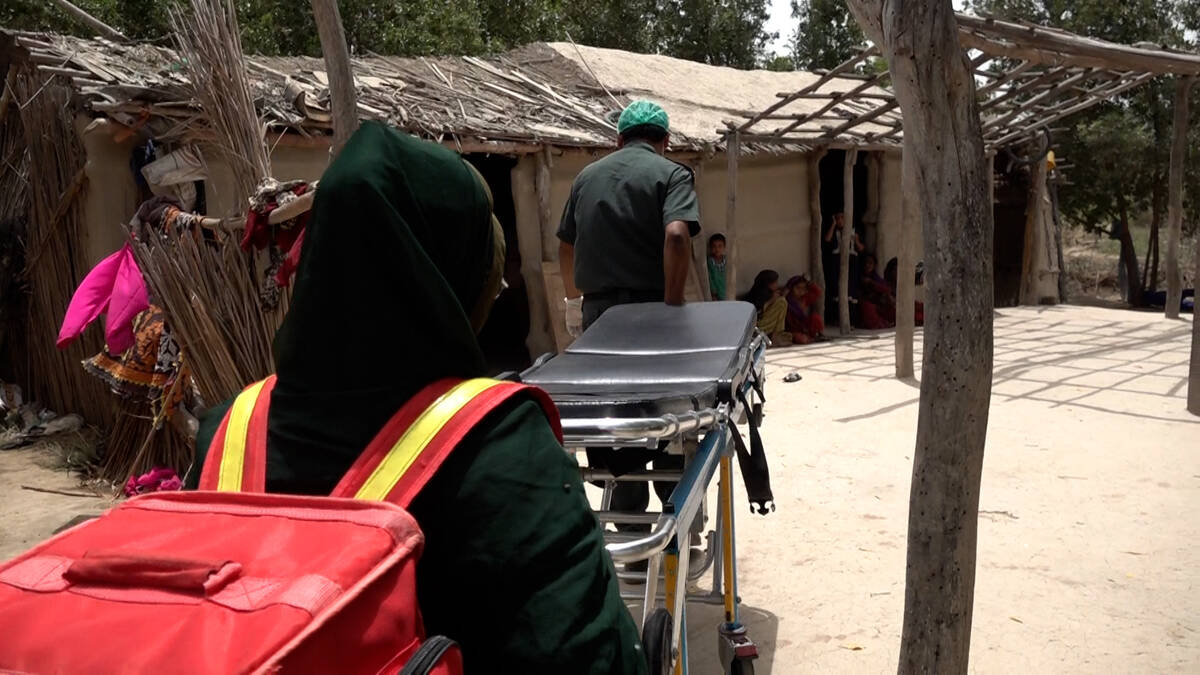QUETTA: Colorful caps are a source of pride for Baloch and Pashtun tribesmen in southwestern Pakistan, and of significant income for shopkeepers ahead of Eid Al-Fitr, as no celebrations in the region can be complete without traditional headgear.
Every year, right before Eid, men throng shops in Circular Road of Quetta, the provincial capital of Balochistan, to buy new headdress.
Some caps are woven with colorful threads, some fitted with tiny, round pieces of glass. They come in many shapes and sizes, with the major Baloch and Pashtun tribes — which make up the two main ethnic groups in Balochistan province — having their own styles.
“Our forefathers have been wearing cultural caps and turbans for many centuries now, especially during the Eid festival,” Mehmood Shah, who traveled 45 km from Mastung district to Quetta to buy a new cap for Eid.

Sellers display traditional caps on a pushcart in Quetta’s Circular Road, Balochistan, southwestern Pakistan, on April 29, 2022. (AN Photo)
“Wearing the traditional headgear on the holy festival is essential dressing for Baloch and Pashtun tribesmen.”
Prices vary. An ordinary cap can be as cheap as $3, but one that features embroidery would cost even 30 times more.

Baloch and Pashtun caps are on display at a shop in Quetta’s Circular Road, Balochistan, southwestern Pakistan, on April 29, 2022. (AN Photo)
Naseer Ahmed, who has been selling traditional headgear for the last two decades, said that handmade Bugti and Yaqoobi caps are the most expensive and sought-after ones, also abroad.
“I have been sending these caps across Balochistan and Afghanistan because demand for caps and turbans rises before Eid Al-Fitr,” he added.
The difference between Baloch and Pashtun headgear can easily be spotted: Baloch caps feature colorful ornaments, while Pashtun ones are known for their simplicity, and woven with a single thread.

Baloch and Pashtun men buy traditional caps for their Eid Al-Fitr attire at a shop in Quetta’s Circular Road, Balochistan, southwestern Pakistan, on April 29, 2022. (AN Photo)
Zia ul Haq, member of the Pashtun Kakar tribe, said Eid was a time when attire was important for everyone in the province.
Although the cultures of Balochis and Pashtuns were different, their love for headgear is the same.
“Without caps and turbans, we feel discomfort,” he told Arab News. “Every single Baloch and Pashtun, whether child, young or old, they all wear their cultural dress during the three days of Eid.”

Baloch caps are on display at a shop in Quetta’s Circular Road, Balochistan, southwestern Pakistan, on April 29, 2022. (AN Photo)


















